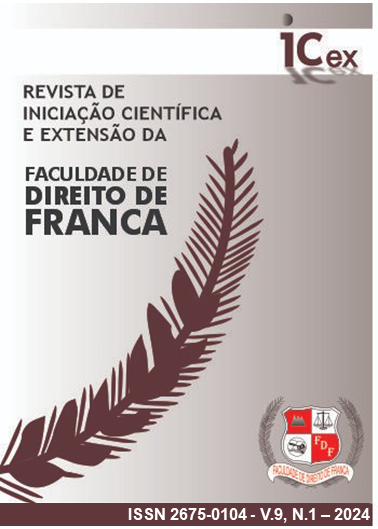MONOPÓLIO: como a prática da concorrência desleal prejudica o mercado? Petrobras, um monopólio?
DOI:
https://doi.org/10.21207/2675-0104.2024.1657Resumo
O presente artigo aborda a importância da livre concorrência na contemporaneidade, destacando que ela é fundamental para garantir um mercado justo e equilibrado. De acordo com a Constituição Federal do Brasil, a livre concorrência é um princípio que define o país como democrático, liberal e capitalista. A proteção da livre concorrência visa beneficiar tanto as empresas que atuam no mesmo ramo quanto os consumidores. Ela garante preços baixos, produtos e serviços de qualidade e estimula a inovação tecnológica. No entanto, o artigo também ressalta a problemática do monopólio, que ocorre quando há apenas um vendedor para muitos compradores. No mercado monopolista, o preço de um produto é determinado apenas pela oferta e demanda, e a empresa detentora do monopólio tem a vantagem de não enfrentar concorrência. Nesse sentido, artigo enfatiza o caso da Petrobras, que já enfrentou acusações de monopólio e teve que lidar com questões relacionadas à concorrência no setor de petróleo. A discussão sobre a importância da livre concorrência e os desafios enfrentados pelos monopólios no mercado são pontos centrais abordados no trabalho. A presente pesquisa se utiliza do metodologia dedutiva, a partir de análises de caso concreto, doutrinas e jurisprudência.
Downloads
Publicado
Edição
Seção
Licença

Este trabalho está licenciado sob uma licença Creative Commons Attribution-NonCommercial-ShareAlike 4.0 International License.

